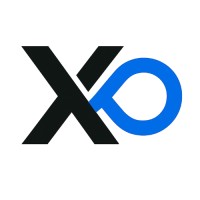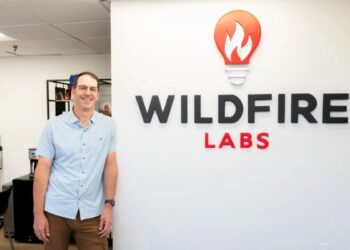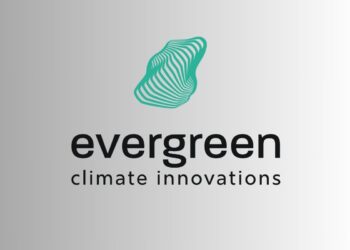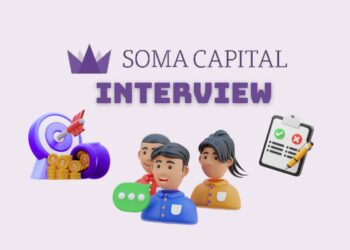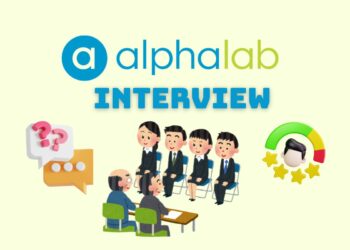If you’re at a very early stage and need support validating your idea, Beta University Pre-Accelerator is a strong incubator-style option. It’s remote, free, equity-free, and built for university teams who want hands-on guidance without needing traction or funding upfront.
Wondering if Beta University Pre-Accelerator is the right fit for you? This article breaks down exactly what the program offers, who it’s best for, and how to join—so you can decide if it aligns with your stage and goals as a student founder. 🚀 Let’s dig in!
Beta University Pre-Accelerator Program Overview
Here’s your quick-glance breakdown of what the Beta University Pre-Accelerator is:
💼 Program Name: Beta University Pre-Accelerator
⏳ Duration: 10 weeks (Core Program)
🌍 Location/Format: Fully remote/online, accessible globally; HQ in Los Angeles
🚀 Stage Focus: Ideation, validation, pre-seed (university students and recent grads)
🧪 Industry Focus: Sector-agnostic, but strong lean toward tech, impact, and scalable business models
💸 Investment Model: In-kind perks ($100k+), Demo Day grants ($2k–$5k), no cash on entry
📊 Equity Taken: None—100% equity-free
🗞️ Fees: Free for all admitted startups
🌟 Why It Matters:
Beta University Pre-Accelerator is a rare find: a high-touch, global program offering top-tier mentorship, an investor pathway, and $100,000+ perks—all with no equity. If you’re early, ambitious, and committed to real progress, it’s a shortcut to credibility, a world-class network, and your first shot at real funding.
Beta University Pre-Accelerator Investment Terms
Let’s clarify the money side: Beta U doesn’t publicly share equity terms, so it’s best to assume case-by-case outcomes. There is a program fee, though the exact amount is not listed online. Most founders get access to over $100,000 in in-kind perks, and some receive non-dilutive Demo Day grants of $2,000–$5,000.
- Equity terms: Not publicly disclosed
- Program fee: Required but undisclosed
- No upfront investment for all startups
- Beta invests in select startups with a follow-on check of $150,000
- In-kind perks: $100,000+ in credits (e.g., AWS, Google Cloud, Stripe)
Bottom line: every startup gets meaningful support, but only select teams may receive investment or post-program follow-on funding.
Benefits & Why Beta University Pre-Accelerator
For early-stage founders, not all accelerators are created equal. The real value is the “insider edge”—the training, community, and networks that get you noticed (and funded) later. Here’s what you get with Beta U:
Global Network Access 🌍
Rub shoulders with a handpicked, international cohort and a mentor pool that includes unicorn founders, YC alumni, VCs, and domain experts. Peer learning and relationships here can last a lifetime.
Elite, Hands-On Training 📚
Follow a 10-week, startup-proven curriculum: Lean Startup, customer validation, MVP building, GTM strategies, investor pitches, fundraising, and legal basics—all via live and recorded, founder-led sessions.
Investor & Demo Day Pipeline 💡
Showcase at Demo Day to 50+ early-stage VCs and accelerators. Alumni have already landed spots in Y Combinator, Techstars, and earned follow-on funding and pilots with major companies.
Accountability & Progress 🚦
Structured weekly sprints keep you shipping, learning, and iterating fast—so you don’t fall into “workshop trap” stagnation.
Ongoing Alumni Bridge 🚤
Post-program, you join a growing community with access to future events, warm intros to elite accelerators/investors, and lifelong network support.

Program Schedule and Details
In 8 weeks, you will learn essential knowledge as a founder, including how to build and continuously iterate an MVP, design business models, find and validate markets, and enhance pitch skills, among other topics.🧠
Every week, our advisors, including those who have participated in YC and other top-tier accelerator programs, will share their insights based on the weekly topics, providing comprehensive entrepreneurial analysis from the perspectives of investors and successful entrepreneurs.
🌟Week 1 – Validation
- Define the Problem: Clearly articulate the core issue your startup addresses.
- Conduct Customer Research: Interview potential users to gather real-world insights.
- Draft Initial Solution: Outline your proposed solution based on research findings.
- Create Problem-Solution Fit Document: Compile insights into a structured document to guide product development.
🌟Week 2 – Market Fit
- Perform Market Analysis: Assess industry trends, competitors, and market size.
- Build Customer Profiles: Create detailed personas representing your target users.
- Map Customer Journey: Visualize the steps users take to interact with your product.
- Develop Product-Market Fit Hypothesis: Formulate assumptions on how your product fits user needs.
🌟Week 3 – Business Models
- Test Revenue Model: Explore and evaluate potential ways to generate income.
- Build & Develop MVP: Create a minimum viable product to validate your core solution.
- Track Early Traction Metrics: Identify and monitor key performance indicators.
- Conduct Early Revenue Testing: Run small-scale tests to assess pricing and demand.
🌟Week 4 – GTM (Go-to-Market)
- Outline GTM Strategy: Define how you’ll introduce your product to the market.
- Identify Customer Acquisition Channels: Pinpoint effective marketing and outreach methods.
- Build Network for Growth: Leverage relationships and communities to scale.
- Launch & Test MVP: Release your MVP to real users and gather feedback.
🌟Week 5 – Scale Up
- Refine Your Pitch: Improve clarity, persuasion, and flow of your founder pitch.
- Practice Pitching (Live Sessions): Get feedback through simulated investor presentations.
- Build Your Narrative: Craft a compelling story that highlights your mission and vision.
- Start Pitch Deck Creation: Begin structuring your investor presentation deck.
🌟Week 6 – Pitch Deck
- Learn Legal Basics for Startups: Understand key legal concepts like incorporation and IP.
- Map Out Growth & Development Roadmap: Plan your startup’s next 12–18 months.
- Finalize Your Pitch Deck: Complete your slide deck with storytelling and data.
- Plan Strategic Next Steps: Identify post-program goals and execution plans.
🌟Week 7 – Investor Relations
- Identify Ideal Investors: Research VCs and angels aligned with your space.
- Understand Investor Expectations: Learn what investors look for in early-stage startups.
- Build a Data Room: Organize documents (pitch deck, financials, roadmap) for due diligence.
- Plan Investor Outreach Strategy: Prepare messaging, timelines, and intro pathways.
🌟Week 8 – Fundraising
- Set Fundraising Goals & Timeline: Define how much you need and when.
- Create a Fundraising Strategy: Align milestones, investor types, and funding stages.
- Practice Investor Pitches: Hone your delivery and handle tough questions.
- Wrap-Up: Demo Day / Internal Pitch: Present your startup to mentors and stakeholders.

Portfolio & Notable Alumni
What really proves an accelerator’s claims? Alumni who go on to real wins. Beta U’s short history is already dotted with breakout teams—proof that this incubator-style program helps very early founders reach their next milestone.
- Members.Land: Social platform for token-gated communities. Backed by Y Combinator.
- Nexad: AI-powered sales enablement for enterprise teams. Backed by A16Z, Point72 Ventures.
- AdsGency: All-in-one AI marketing co-pilot for SMBs. Backed by HF0, Techstars.
- Brewit: Smart cold-brew coffee maker with app control. Backed by Y Combinator.
- Suger.io: AI tool for streamlining e-commerce operations. Backed by Y Combinator.
- Dream Voyage: Immersive VR travel experience platform. Backed by A16Z.
- Awear: Smartwearables for health and mindfulness tracking. Backed by Techstars, Hustle Fund.
- Generation Lab: Real-time polling platform for Gen Z insights. Backed by Sequoia Capital.
- Epal: Marketplace to book gaming companions and streamers. Backed by A16Z.
- Kokolu: Eco-friendly fashion brand for conscious consumers. Backed by UpHonest Capital.
- Openmart: B2B e-commerce marketplace for global sourcing. Backed by Y Combinator, Afore Capital.
- Final Round AI: AI interview prep assistant for job seekers. Backed by Uncork Capital, Alumni Ventures.
- SCAM AI: Deepfake detection for social platforms. Backed by Berkeley SkyDeck.
- Safebase: Security status automation platform for enterprise vendors. Backed by NEA, Y Combinator. Acquired by Drata for $250M.
- Tutti: Marketplace for creative space rentals. Backed by Berkeley SkyDeck.
- MathGPT: AI tutor for advanced math learning and problem-solving. Backed by Berkeley SkyDeck.
💡Alumni have collectively raised $8M+ in follow-on funding and secured spots in Y Combinator, Techstars, and other tier-one accelerators.
Final Thoughts
If you’re an ambitious founder at the very beginning of your journey—still validating your idea or building your first MVP—Beta University Pre-Accelerator is a purpose-built incubator to help you get moving. It’s not designed for Seed or Series A startups. This is a training ground: structured, founder-focused, and equity-free.💹☄️
What sets it apart isn’t just the zero cost or high-value perks, but the clarity of its mission: to train startup talent early, connect them with a global network, and prepare them for the accelerators and capital stages that come later.🎯
No matter where you’re based, if you’re still early and eager to learn, Beta U is a strategic opportunity that can compress years of learning into 10 weeks. If that sounds like your jam, make your application count—and good luck!🚀
